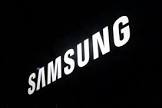$SSNLF
#Samsung #StockBuyback #ShareRepurchase #TechStocks #KoreaStockMarket #EquityMarket #CorporateStrategy #MarginCall #FoundingFamily #BusinessNews #FinancialMarket #TechIndustry
Samsung Electronics’ decision to initiate its first share repurchase plan in seven years has led to a positive reaction in the market, with shares in the conglomerate jumping. The move has been interpreted by analysts as a measure designed to boost the company’s stock and potentially stave off challenges for Samsung’s founding family, particularly in the form of margin calls. A share buyback reduces the amount of outstanding stock, which generally increases the value of remaining shares, appealing to investors who may hold or buy shares expecting appreciation.
For the founding Lee family, which controls Samsung, the buyback serves a dual purpose. Under financial pressure with some having taken loans collateralized with shares of Samsung, a falling stock price can exacerbate those loan terms—triggering margin calls, where the borrower must either repay part of the loan or provide more collateral. By pushing up the share price, Samsung is not only demonstrating financial confidence but also potentially protecting the Lee family from added financial strain. The company may be using this repurchase as a financial buffer and a strategy to enhance its standing in both retail and institutional investors’ portfolios.
The buyback plans come at an opportune time, as broader market conditions in the tech sector have been mixed. With heightened geopolitical uncertainties, especially in chip production and semiconductor supply chains, companies like Samsung have faced headwinds in global trade and investor expectations. Investors are also scrutinizing tech firms for how they allocate capital, seeking meaningful returns amid growing skepticism towards expensive research and development expenditures without clear short-term benefits. By focusing on boosting shareholder value through its buyback program, Samsung is likely aiming to assuage some of these concerns and bolster confidence in the company’s management during turbulent times.
However, some critics argue that buybacks can sometimes mask a lack of growth opportunities or innovation. They may see this move as more reactionary or a “desperate” attempt to hold onto shareholder interest rather than pursuing avenues for organic growth. Yet, in this case, Samsung’s large cash reserves and its significant role in crucial tech sectors—from memory chips to consumer electronics—make some analysts view this buyback as a calculated measure. These shifts appear to be in line with other tech giants aiming to stabilize their market position as they face economic challenges while preparing for future growth opportunities.











Comments are closed.